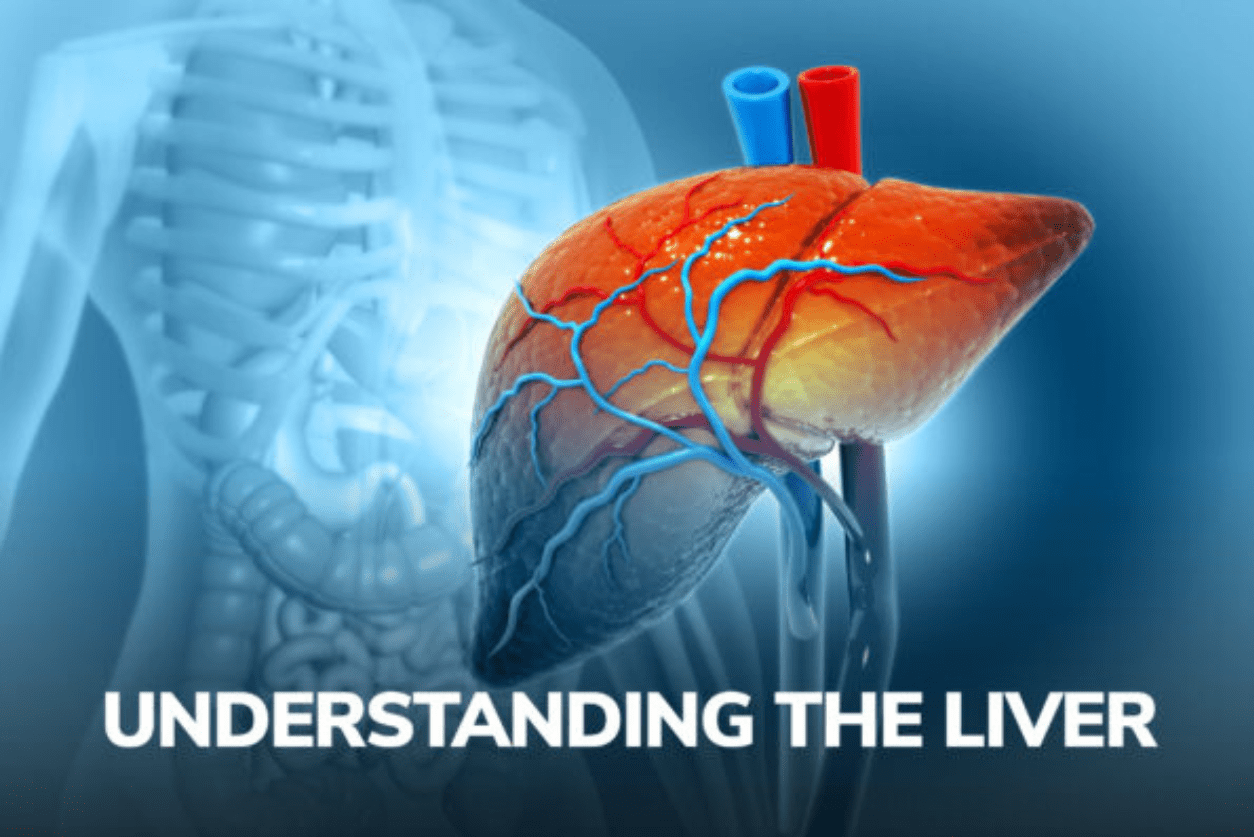
Understanding the Liver: Anatomy, Functions, Health Maintenance, and Warning Signs
The liver is a vital organ in the human body and crucial in maintaining overall health and well-being. This reddish-brown, spongy gland weighs around three pounds and is positioned beneath your abdomen’s diaphragm in the upper right segment. With its unique design and multiple functions, the liver takes center stage in your body’s metabolic processes.
Anatomy of the Liver
The liver consists of two primary parts: the larger right lobe and its smaller counterpart, the left lobe. Blood flows into the liver from two main sources: the hepatic artery, delivering oxygen-rich blood, and the hepatic portal vein, bringing in blood-laden nutrients from the digestive system.
Inside the liver, myriad lobules link through tiny ducts and vessels. These lobules act as the liver’s operational units, overseeing its metabolic tasks. Hepatocytes, or hepatic cells, constitute roughly 60% of the liver’s tissue, executing various functions crucial to the body’s health and balance.
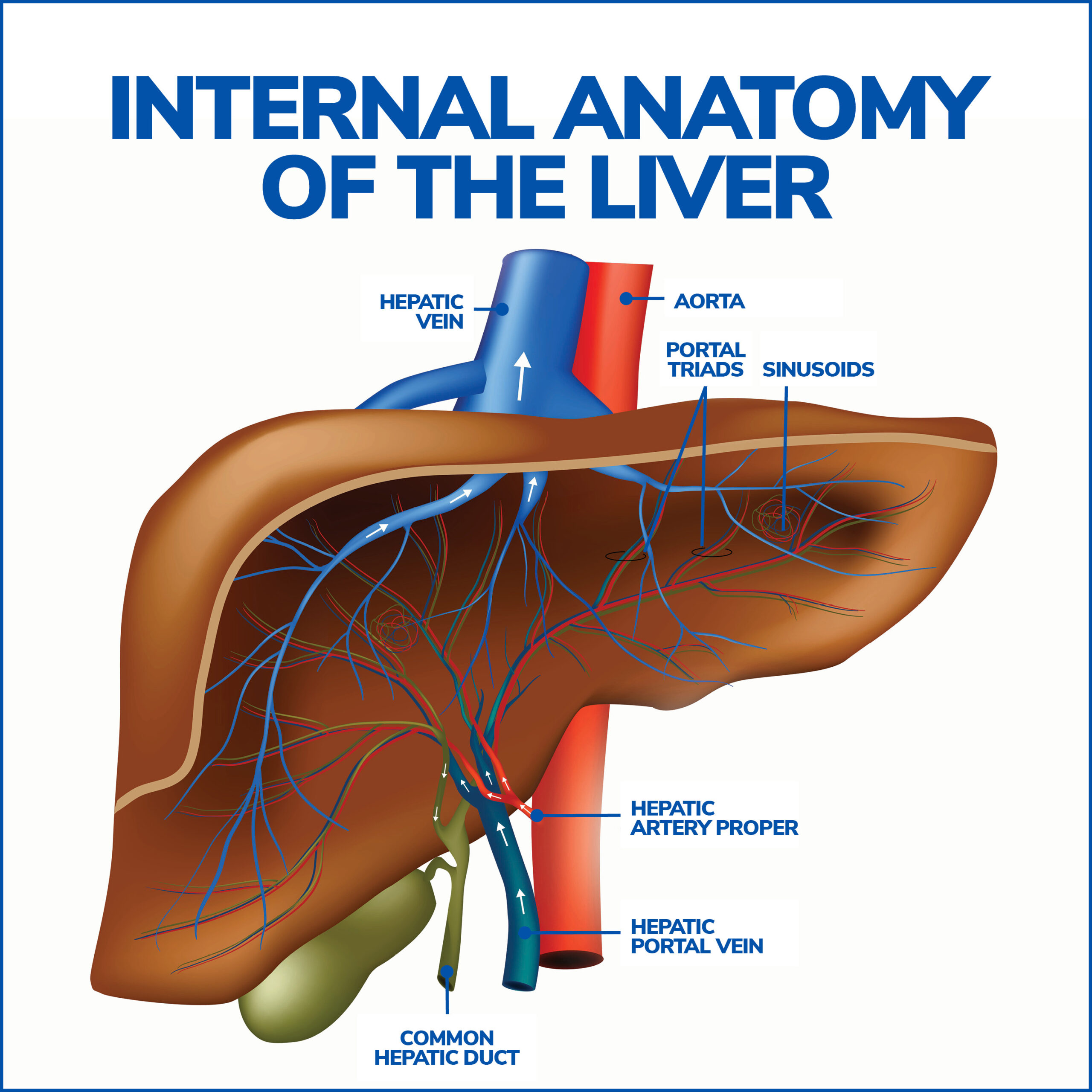
Functions of the Liver
The liver is involved in more than 500 vital functions, making it one of the most important organs in the body. Some of its key functions include:
- Bile Production and Digestion: The liver produces bile, a digestive fluid that helps break down fats in the small intestine during digestion. Bile is essential for the absorption of fat-soluble vitamins and the elimination of waste products from the body.
- Metabolism of Nutrients: The liver plays a crucial role in metabolizing proteins, carbohydrates, and fats. It converts these nutrients into forms that can be used by the body or stored for future energy needs. The liver also regulates blood sugar levels by converting excess glucose into glycogen for storage and releasing it as needed.
- Detoxification and Waste Removal: As a major detoxifying organ, the liver filters harmful substances, such as drugs, alcohol, and toxins, from the blood. It metabolizes and eliminates these substances, preventing them from causing harm to other organs in the body. The liver also converts ammonia, a byproduct of protein metabolism, into urea, which is excreted in the urine.
- Storage of Essential Substances: The liver is a storage site for essential substances the body needs. It stores vitamins, minerals, and glycogen, an energy source that can be released when needed.
- Synthesis of Proteins and Blood Clotting Factors: The liver synthesizes various proteins, including albumin and blood clotting factors. These proteins are essential for maintaining proper blood volume, preventing excessive bleeding, and supporting the body’s immune system.
- Regulation of Blood Clotting: The liver produces substances that regulate blood clotting, prevent excessive bleeding, and promote proper wound healing. Without a properly functioning liver, the risk of bleeding complications increases.
- Immune Function: The liver plays a vital role in the body’s immune system. It produces elements that help fight off infections and remove bacteria from the bloodstream. The liver’s immune function is crucial for overall health and protection against various diseases.
- Removal of Old Red Blood Cells: Red blood cells that have deteriorated with age and lost their ability to divide and grow (senescent) are destroyed in the liver, spleen, and bone marrow. The liver processes the breakdown products of these red blood cells, including bilirubin, a yellow pigment. Bilirubin is excreted in the bile, giving bile and stool their characteristic color.
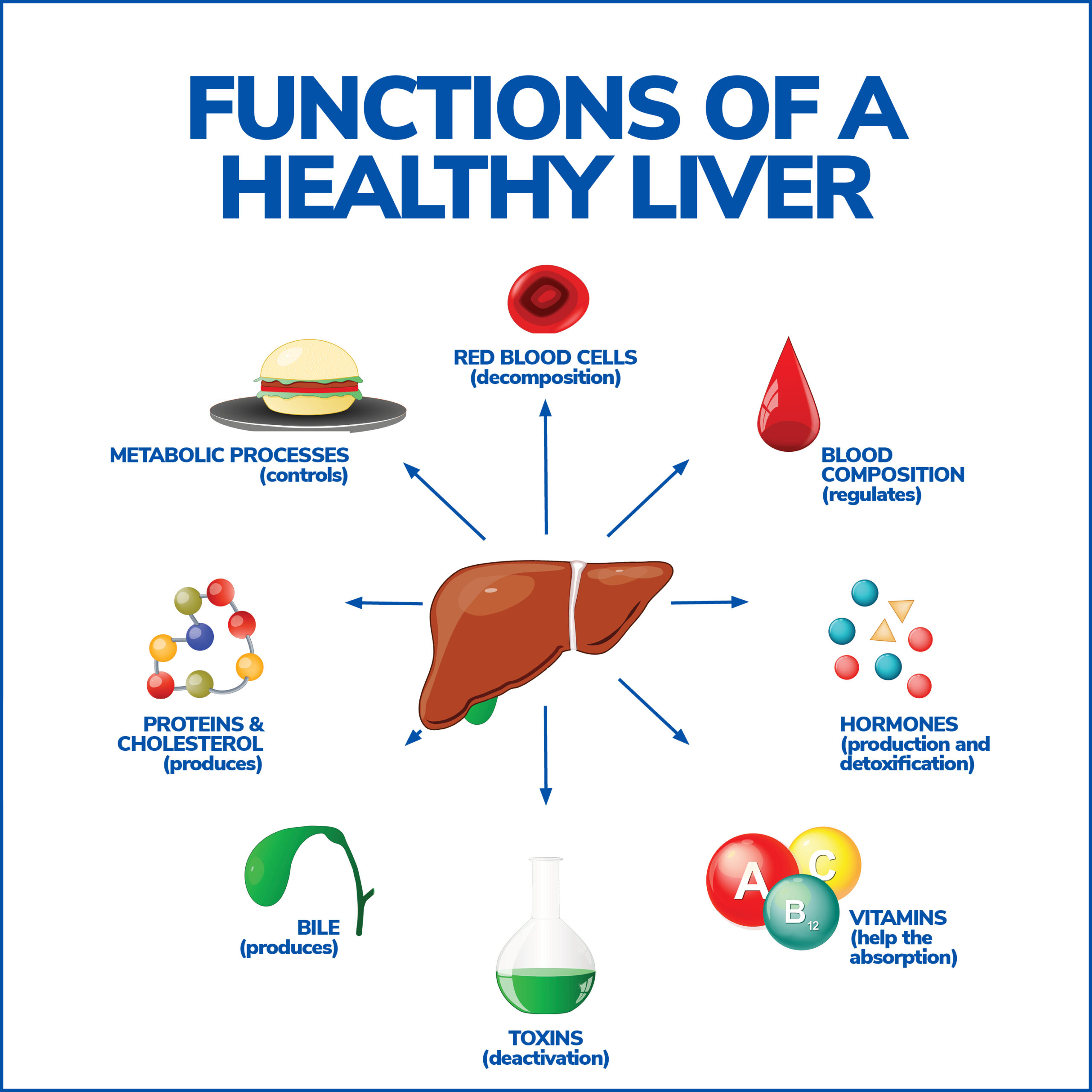
Tips for Maintaining Liver Health
For optimal liver health and functionality, a healthy lifestyle and preventive steps are crucial. Here are some tips for maintaining liver health:
- Practice Moderation in Alcohol Consumption: Excessive alcohol consumption can damage the liver and increase the risk of liver diseases. It is important to limit alcohol intake and practice moderation to protect your liver.
- Follow a Healthy Diet: Eating a balanced diet low in saturated fats, sugar, and processed foods can help maintain liver health. Focus on consuming fruits, vegetables, whole grains, and lean proteins to provide the necessary nutrients for optimal liver function.
- Stay Hydrated: Proper hydration is crucial for liver health. Drinking an adequate amount of water helps flush toxins from the body and supports liver function.
- Exercise Regularly: Regular physical activity helps maintain a healthy weight and reduces the risk of fatty liver disease. Incorporate at least 30 minutes of moderate-intensity exercise several times throughout the week.
- Practice Safe Sex and Take Precautions: Some viral infections, such as Hepatitis B and Hepatitis C, can be transmitted through unprotected sex. Practicing safe sex and using proper protection can help prevent the spread of these infections.
- Avoid Sharing Personal Items: Avoid sharing personal items such as razors, toothbrushes, or needles, as they can contribute to the transmission of infections, such as hepatitis.
- Practice Good Hygiene: Proper hygiene practices, like consistent and thorough handwashing, can help prevent the spread of infections that can harm the liver.
- Vaccinations: Consult your gastroenterologist about vaccinations for Hepatitis A and Hepatitis B. Vaccinations can protect against these viral infections and reduce the risk of liver damage.
- Avoid Toxins and Chemicals: Reduce exposure to toxins and chemicals that can harm the liver. This includes avoiding cigarette smoke, industrial chemicals, and other environmental toxins.
- Regular Check-ups and Screening: Regular check-ups with your gastroenterologist are essential for monitoring liver health. Screenings for viral hepatitis and other liver diseases can help detect potential problems early on and allow for timely intervention.
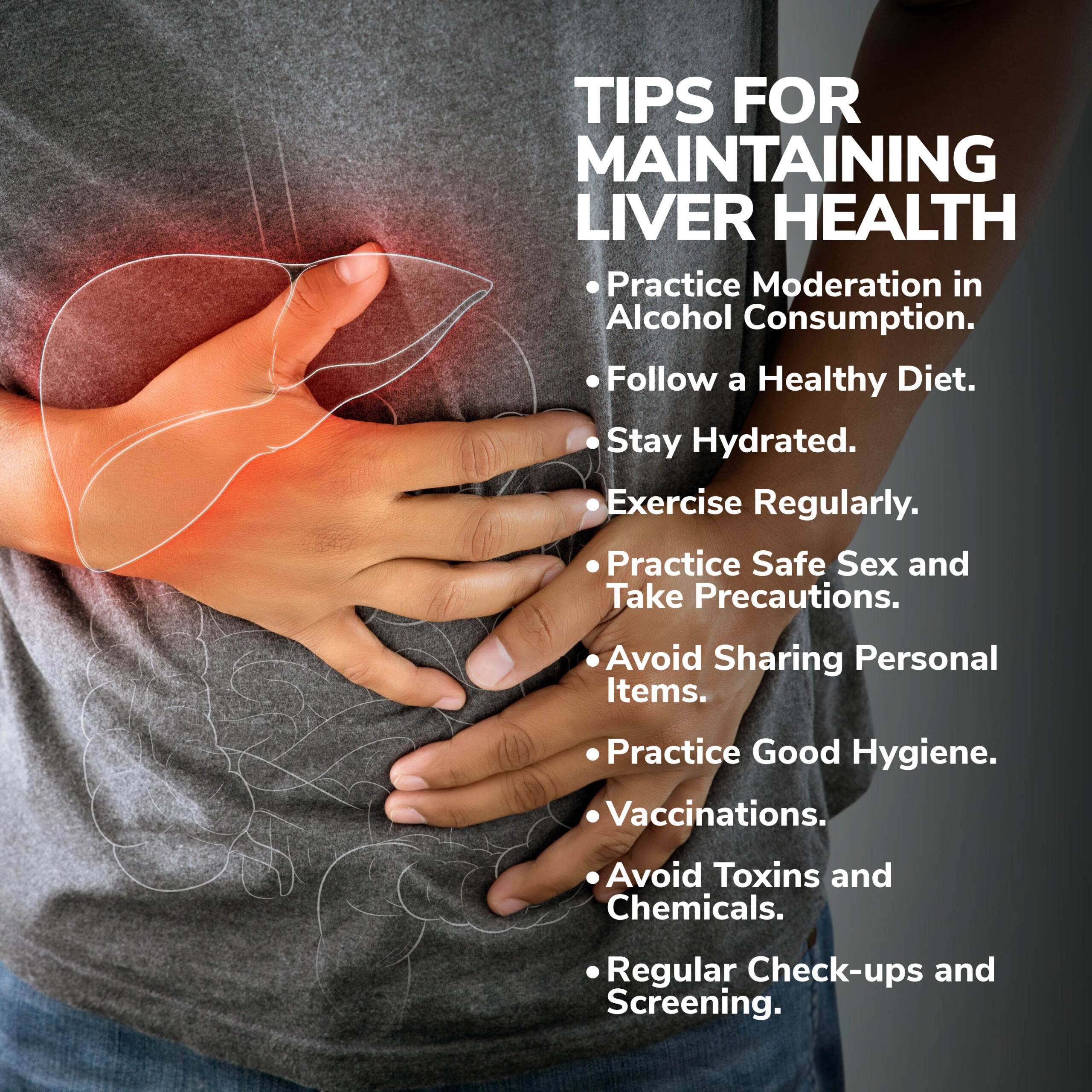
Signs of Liver Problems
Knowing the signs and symptoms that can indicate liver problems is important. Early detection and intervention can prevent further liver damage. Seek medical attention if you experience any of the following symptoms:
- Jaundice (yellowing of the skin and eyes).
- Abdominal pain or discomfort.
- Nausea and vomiting.
- Unexplained weight loss.
- Fatigue and weakness.
- Dark urine.
- Pale stools.
- Swelling in the abdomen or legs.
- Changes in mental function or personality.
If you have any concerns or suspect liver problems, it is crucial to consult with a gastroenterologist for proper evaluation and diagnosis.
With its myriad functions, the liver is central to our overall health. Understanding its structure and function and how to care for and detect early warning signs is crucial for promoting liver health and preventing diseases. By pursuing a healthy lifestyle, embracing preventive measures, and seeking prompt medical care, you can safeguard your liver and guarantee its optimal performance.
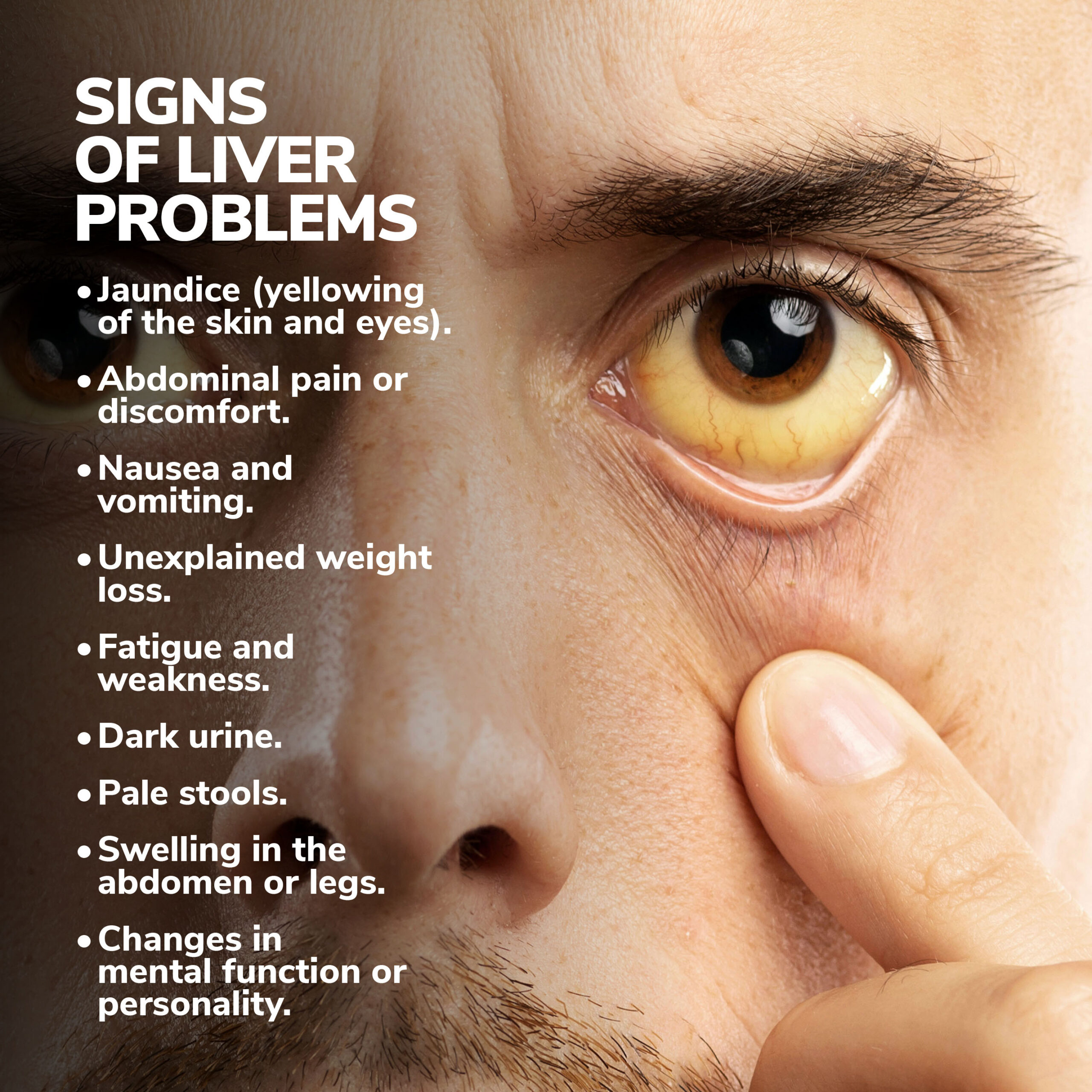
Contact Us
For specialized advice and all-inclusive liver care, contact us at Gastroenterology of Greater Orlando, where prioritizing your liver’s health is our foremost commitment. Our team of experts is here to help diagnose and treat your condition with the utmost care and expertise. Our practice began more than 15 years ago and has emerged as one of the leading gastroenterology practices in central Florida. We perform a host of diagnostic procedures using state-of-the-art equipment in a friendly, comfortable, and inviting atmosphere where patient care is always a top priority. Contact us today!